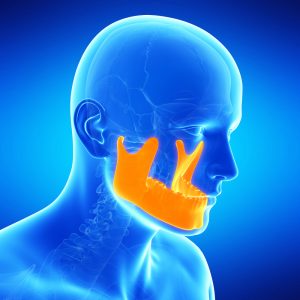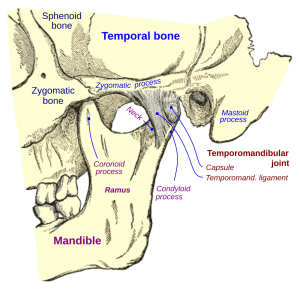When should you see a doctor for migraine? If you get migraines often or they’re really intense, it’s important to know when to seek help. Migraines are more than just headaches — they can seriously impact your daily life. Recognizing the signs and knowing when to see a doctor can make a big difference.
Key Takeaways
- Migraines are more than headaches—they’re a neurological condition that can seriously affect daily life.
- See a doctor if your migraines are frequent, worsening, or disrupting work, relationships, or routine.
- Red flag symptoms like confusion, numbness, or vision loss require immediate medical attention.
- Tracking your migraine history and symptoms helps doctors create effective, personalized treatment plans.
- With medical support and lifestyle adjustments, chronic migraines can be better managed for long-term relief.
Understanding Migraines: More Than Just a Headache
Migraines are more than just headaches. They are a brain condition with many symptoms. These symptoms can really affect your daily life. If you get migraines, it's important to know what they are and how they differ from other headaches.
What Defines a Migraine
A migraine is a very painful headache. It often comes with nausea, vomiting, and sensitivity to light and sound. The pain usually happens on one side of the head, but it can switch sides.
How Migraines Differ from Other Headaches
Migraines are not just muscle tension like tension headaches. They have neurological symptoms. They can be triggered by many things, like hormonal changes, certain foods, and stress.
Common Types of Migraines
There are different types of migraines. These include migraines with aura, migraines without aura, and chronic migraines. Knowing the type you have can help you find the right treatment from a headache specialist.
Knowing the symptoms and how to get diagnosed is key to managing migraines. By recognizing what to look for and when to see a doctor, you can take charge of your condition.
Common Migraine Symptoms and Warning Signs
Knowing the signs of a migraine is key to managing it. Migraines are more than headaches. They bring a mix of symptoms that can really affect your day.
Primary Migraine Symptoms
A migraine's main symptom is a severe headache, usually on one side. You might also feel sick to your stomach, throw up, or be very sensitive to light and sound.
Migraine Aura and Prodrome Symptoms
Some people see flashing lights or blind spots before a migraine. The prodrome phase can start hours or days before. It might make you feel tired, change your mood, or crave certain foods.
Postdrome: The Migraine Hangover
After the headache, you might feel very tired, confused, or washed out. This is called the postdrome phase.
Physical Symptoms After an Attack
After a migraine, you might feel weak, cold, or just not well. These physical symptoms can last.
Cognitive and Emotional Effects
Feeling tired, moody, or emotionally drained can also last. It's hard to focus and you might feel down.
How to Know if It's Time to See a Doctor for Migraine
If you get migraines, knowing when to see a doctor is key. Migraines are more than headaches. They can really hurt your daily life.
Red Flag Symptoms That Require Immediate Attention
Some symptoms with a migraine mean you need to see a doctor right away. These include:
- Confusion or trouble speaking
- Vision changes or loss
- Severe headache with fever
- Weakness or numbness in parts of your body
Spotting these signs is very important for your health.
Frequency and Severity Indicators
How often and how bad your migraines are also matter. If your migraines are:
- Happening more often
- Lasting longer than before
- Getting worse
Impact on Daily Life and Functioning
Migraines can really mess up your life. They can hurt your work, friends, and how you feel overall.
Work and Productivity Concerns
If migraines make you miss work or slow you down, see a doctor. They can help you feel better.
Effects on Personal Relationships
Migraines can also hurt your relationships. They can be unpredictable and very bad. Going to the doctor can help manage this.
Knowing when to get help for migraines is a big step. A doctor can give you advice and treatment that fits you.
Emergency Situations: When to Go to the ER
Knowing when to seek emergency help for a migraine can save lives. Most migraines are not dangerous. But, some symptoms can mean a serious problem.
Severe or Unusual Symptoms
If you have a sudden severe headache, confusion, fever, or numbness, go to the ER right away. These signs might mean something more serious than a usual migraine.
Migraine Complications Requiring Emergency Care
Some migraine problems need urgent care. These include status migrainosus (a migraine lasting over 72 hours) or migrainous infarction (a stroke caused by a migraine). If you have any strange or severe symptoms, go to the ER.
What to Expect During an Emergency Visit
At the ER, doctors will check your symptoms and do tests. They will then give you the right treatment. Be ready to tell them about your symptoms, health history, and any medicines you take.
Preparing for Your Doctor's Appointment
Going to the doctor for migraines can really help. To get the best care, you need to be ready with the right info.
Tracking Your Migraine History
Writing down your migraines is key. Note the date, time, and how long it lasts. Also, write down any symptoms you feel.
Questions to Ask Your Doctor
Make a list of questions for your doctor. Ask about triggers, treatments, and managing symptoms.
What to Bring to Your Appointment
Bring important documents to your visit. This includes:
- A detailed migraine diary
- A list of your current medications
- Any relevant medical history
Migraine Diary and Documentation
Keeping a migraine diary is very helpful. Write down when you have a migraine, how bad it is, and what triggers it. Also, note any medicines you take.
Medication List and History
Bring a full list of your medicines. Include how much and how often you take them. This helps your doctor see what you're already doing and make changes if needed.
The Diagnostic Process for Migraines
Getting a correct migraine diagnosis is key to managing your condition well. When you see a headache specialist, they will check you thoroughly. They aim to find out why you get migraines.
Medical History and Physical Examination
Your doctor will first ask about your health history. They want to know when your symptoms started and how long they last. They also want to know what makes your symptoms better or worse.
Then, they will do a physical check. This is to see if there are any other health issues that might be causing your migraines.
Diagnostic Tests and Imaging
Even though there's no single test for migraines, your doctor might do some tests. These are to make sure your headaches aren't from something else.
- Blood tests to check for underlying conditions
- Imaging tests like MRI or CT scans to check for structural abnormalities
Ruling Out Other Conditions
Your doctor will also think about other reasons for your headaches. This includes other headache disorders and neurological conditions.
Secondary Headache Disorders
Secondary headache disorders are headaches caused by other health issues. These can be:
- Sinusitis or other infections
- Head or neck injuries
- Medication overuse
Neurological Conditions
Some neurological conditions, like multiple sclerosis or stroke, can also cause headaches. Your doctor will look at your risk factors and symptoms. They will decide if you need more tests.
By doing a thorough check, you and your doctor can find the best treatment for your chronic migraines.
Types of Healthcare Providers for Migraine Treatment
You don't have to face migraine treatment alone. Many healthcare providers can help. It's important to find the right one for your needs.
Primary Care Physicians
Your primary care doctor is usually the first to help with migraines. They can figure out if you have migraines, give you medicine, and send you to specialists if needed.
Neurologists and Headache Specialists
For harder cases, neurologists or headache specialists are great. They know a lot about brain problems and can give you special treatments for migraines.
Other Specialists Who May Help
Pain Management Specialists
Pain management doctors are good for very bad or hard-to-treat migraines.
Integrative Medicine Practitioners
Integrative medicine doctors might use things like acupuncture or herbal remedies. They can help along with your usual treatment for migraines.
Managing Chronic Migraines with Medical Support
Chronic migraines can really hurt. But, with the right help, you can manage them well. You'll need medical treatment, lifestyle changes, and learning to avoid triggers.
Developing a Personalized Treatment Plan
Every person's migraines are different. Your doctor will help you make a plan just for you. They'll figure out your migraine patterns and what triggers them.
Lifestyle Modifications and Trigger Management
Changing your lifestyle is key. Keep a regular sleep schedule and drink plenty of water. Also, try to avoid things that make your migraines worse.
Monitoring Progress and Adjusting Treatment
It's important to keep track of how you're doing. This helps your doctor make changes to your treatment if needed.
Tracking Treatment Effectiveness
Writing down when you have migraines can help a lot. It shows your doctor if your treatment is working or if it needs to be changed.
When to Consider Alternative Approaches
If your current treatment isn't helping enough, it's time to think about other options. This could mean trying new medicines or therapies.
Working with your doctor and sticking to your plan can really help. You can learn to live better with chronic migraines.
Beyond the Pain: Personalized Migraine Care Starts Here
Knowing when to see a doctor is important for managing migraines. If you get migraines often or they are very painful, it’s time to talk to a doctor. This is the first step to feeling better. Seeing a doctor is not just about stopping the pain—it’s about taking care of your health. A doctor can make a plan just for you. This might include medicine, lifestyle changes, or other treatments.
Don’t let migraines take over your life. By getting help, you can have fewer migraines and make them less painful. Talk to your doctor to find out what works best for you. With the right support, you can feel better and enjoy life more.
At Raleigh Facial Pain Center, our doctors are here to help. We give full checkups and create treatment plans made just for you. Whether your migraines are common or more complex, we use proven and new treatments to help you feel better and take back control. Contact us today to get started on your path to relief.
FAQs
Is it okay to have a migraine for 3 days?
Having a migraine that lasts 3 days is not normal and can be very serious. This type of long-lasting migraine is called a "status migrainosus." You should see a doctor right away if your migraine lasts this long.
Why is my migraine not going away?
Your migraine might not go away because of triggers like stress, dehydration, lack of sleep, or certain foods. Sometimes, it could be a sign that you need medical treatment or a change in your migraine medication. Seeing a doctor can help find the cause and get the right treatment.
How many days is too many for migraine?
If you have migraines more than 15 days in a month, it is called chronic migraine and you should see a doctor. Also, if a single migraine lasts more than 72 hours, it’s important to get medical help.
What will a doctor do for a migraine?
A doctor will check your symptoms and may suggest treatments like pain relief medicine, anti-nausea drugs, or preventive medicines. They can also help you identify triggers and recommend lifestyle changes to reduce migraines.



